NUTRITION & YOU MENOPAUSE










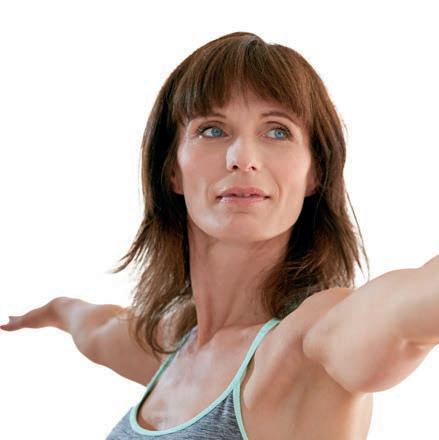
Menopause is natural part of a woman’s life and happens when she has had her final period. It can occur between the ages of 40-60 but the average age of menopause in women in Ireland is 51 years. The lead up to this, called Perimenopause sometimes lasts several years. It can be useful to start informing yourself during your 40’s about what you may expect as you transition through menopause to help you understand symptoms, if and when they arise and how to take care of yourself.

The experience of menopause can be very different from one woman to another so there is no ‘one-size-fits-all’ solution. Some experience mild, infrequent or no symptoms while others can be more severely affected. Irish data shows around 78% of women say it interferes with normal daily activities1. Symptoms can be both physical and mental and include:
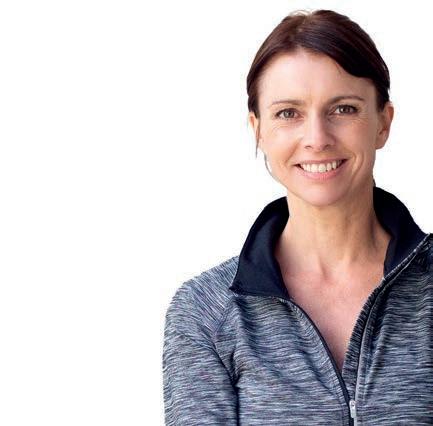
•hot flushes and night sweats

•anxiety, irritability, poor memory, depression, sleep difficulties, anger
•low sex drive and vaginal dryness
•dry skin, hair loss, muscle or joint pain
•low energy levels, weight gain
Many of these symptoms are linked to the decline in sex hormones (mainly oestrogen). However, symptoms may not only be due to menopause so it’s important to talk to your GP. If you are finding your symptoms difficult to deal with, your GP may recommend treatments such as Hormone
Replacement Therapy, Cognitive Behavioural Therapy or other therapies based on your individual needs and health.
Take time to consider whether there are improvements you can make to diet, exercise and other factors such as quitting smoking or excessive alcohol intake. This may help you manage not only some symptoms but also help protect you from type 2 diabetes, heart disease and osteoporosis. As about a third of a woman’s life is spent in post-menopause, so it’s good to make changes that will last.







From the age of around 35 years, there is a gradual loss of bone which speeds up as menopause approaches so women need to pay particular attention to their bones. Many nutrients play an important role in bone health including protein, calcium and phosphorous, all of which are found in the dairy matrix in milk, yogurt and cheese. A daily calcium intake of around 1000mg and vitamin D intake of 15µg (micrograms) are recommended to maintain bone health. Check out how much calcium is found in common foods and see if you are getting enough.
Vitamin D is important to help absorb calcium. It is found in oily fish, eggs and in vitamin D fortified milk and breakfast cereals (check the nutrition panel), however, many people in Ireland don’t get sufficient amounts from their diet. Women should consider taking a vitamin D food supplement targeting 15µg during the winter months when no vitamin D is made in our bodies from the sunlight or all year round for those of darker skinned ethnicity.
As we get older, there is also loss of muscle in our bodies . A combination of ensuring a regular intake of protein (found in dairy products, meat, fish, eggs, pulses and nuts) at each meal along with regular strength building exercise are useful habits to maintain or start. We tend to eat most of our protein in the evening but it is better to space it out evenly through the day. Breakfast is a meal traditionally lower in protein so try adding a scoop of low-fat Greek yogurt and some nuts to your porridge/cereal or try to include an egg for breakfast a few times during the week.
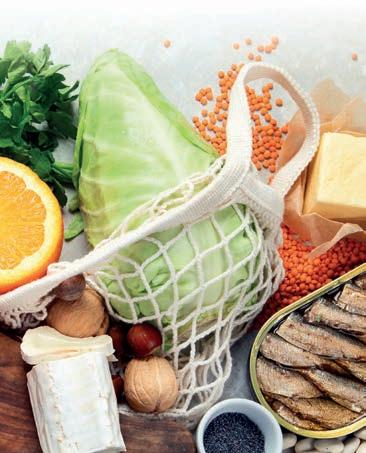
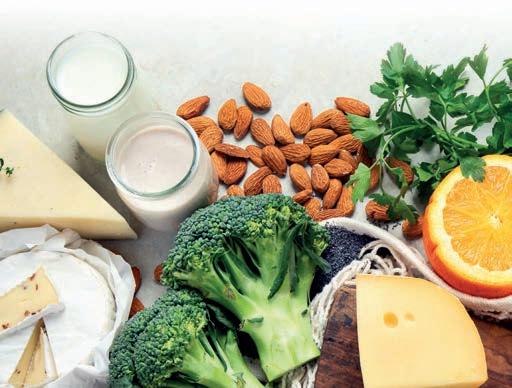
200ml glass semi-skimmed milk
125g plain low-fat yogurt
25g reduced fat cheddar cheese
Cup of cottage cheese
½ tin sardines (with bones)
Broccoli (2 spears)

½ tin baked beans
250mg
200mg
210mg
240mg
260mg
37mg
90mg
It is important to know that oestrogen has a protective effect on your heart and blood vessels so when it decreases, a woman’s risk of heart disease increases. Healthy eating guidelines (see page 7) are just as relevant for menopause and a good place to start. Heart healthy diets focus on reducing saturated fat and salt and increasing the amount of fruit and vegetables in our diet. Keeping portion sizes in check is also key if you are putting on excessive weight. Make one change at a time to ensure new habits are sustained. It may also be a good idea to get your heart health including cholesterol and blood pressure checked by your GP.
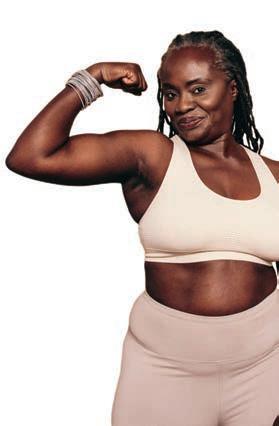
While weight gain is not inevitable, peri-menopause is associated with redistribution of fat to the tummy area. Tiredness from disturbed sleep and other menopausal symptoms like stiff joints may result in less exercise/activity which can also lead to weight gain. Menopause often coincides with greater responsibilities both at home and work which can mean exercise, eating well or managing stress take lower priority, promoting further weight gain.
There is some evidence that reducing weight, if you are overweight can help with some symptoms like hot flushes and night sweats but longer term maintaining a healthy weight will also support heart health too. Ask your GP or a dietitian if you are struggling with weight gain.
Try to reprioritise your health with some simple steps initially.
✓ Identify situations where you might overeat treats e.g., watching TV. Can you go for a walk first ? Sitting down later may mean you eat less treats and at least you have had a walk too!
✓ Enlist a partner or friend to exercise with if you lack motivation
✓ Create goals around healthy habits rather than focusing on the number on your scales. Its far more motivating!
Women may be unsure about whether they can include dairy products like milk, yogurt and cheese if they are managing weight or looking after their heart. However, research does not support that these foods have an adverse effect on cholesterol or other markers of cardiovascular disease. Choosing reduced-fat options offers lower calories - useful if you are managing weight.
A 200ml glass of semiskimmed milk provides 95 calories and 3.5g fat. That less than 5% of the calories and fat in a standard 2000 kcal diet.
Milk is a source of potassium which helps support normal blood pressure*
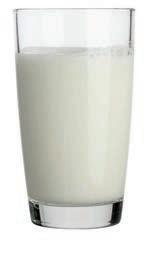
Higher fat dairy products like cream and butter should be used sparingly.


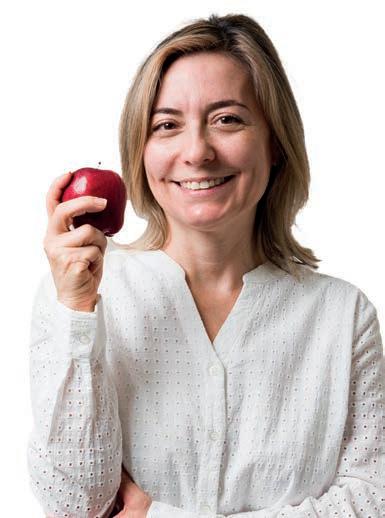
•Aim to include a minimum of five fruits and vegetables every day and choose from as wide a range as you can. Eat the rainbow! Remember canned and frozen vegetables count!
•Watch your portions – using a smaller plate or bowl can help.
•Are you eating enough fibre? Swap white versions of bread and cereals for wholegrain versions. Include pulses like beans and lentils in soups and stews and opt for a handful of unsalted nuts as a healthy snack from time to time.
•Milk, cheese and yogurt provides a matrix of nutrients including protein, calcium and phosphorous which are all needed to help maintain normal bones. Three portions are recommended daily and include a 200ml serving milk, 125g pot yogurt and 25g cheese. Other sources of calcium include dark green vegetables such as broccoli (spinach contains calcium but is poorly available to the body), soft bony fish such as sardines, pulses, nuts and fortified cereals.
•Choose leaner cuts of meat, removing excess fat and try to limit processed meat products (sausages, salamis).
•Aim for at least two portions of oily fish every week. Oily fish includes tinned sardines, mackerel, salmon, trout and herring.
•Use your phone to track how many snacks high in fat and sugar you are eating. It might surprise you. Replace crisps, pastries, cakes and biscuits with fruit, cheese, low fat yogurt or vegetables and houmous which provide tasty but nutritious snacks.
•Use oils and fats that are high in unsaturated fat such as rapeseed, sunflower and olive oils/spreads. Use yogurt in place of mayonnaise for sandwich fillers.
•Avoid adding salt to food, and take care not to over-use sauces and gravies.
•When eating out choose lower calorie menu options that include vegetables, fruits & wholegrains. Ask for extra salad or a baked potato instead of chips.


•Don’t forget to stay hydrated- 6-8 glasses of fluid per day. All fluids count but rely on water, and milk rather than soft sugar-sweetened drinks. Tea and coffee also count but chose decaffeinated versions later in the day if sleep is an issue.
•Keep an eye on alcohol intake. The recommended limit for women is 11 standard units per week, spread across the week with alcohol free days too. A unit includes a ½ pint of beer, pub measure of spirits or small glass of wine (100mls).
The Department of Health’s food pyramid provides additional information on general healthy eating guidelines. See further reading
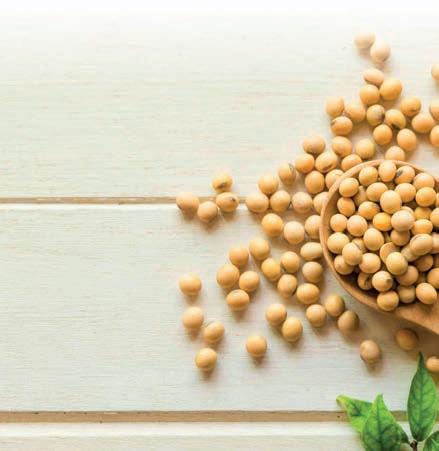
Phytoestrogens, found in some plants (soya, linseed, sesame seeds) are similar to oestrogen but much weaker. For this reason, they may help with symptoms of hot flushes in some women but more research is needed and it may take months to notice a change in symptoms. However, these foods are also good sources of fibre so you can always give them a try-include soya beans in casseroles, a teaspoon of linseeds with your cereal or add sesame seeds to salads.
Various supplements are targeted at menopausal women and while some women may find them useful, there is inconsistent evidence around how effective some are. Don’t forget to talk to your GP before you take a food supplement, particularly if you have a medical condition or are on medication.
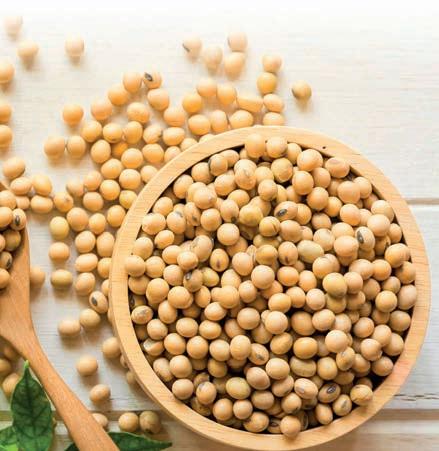
Taking regular exercise is not only good for your physical wellbeing but many women find it helps with the psychological symptoms of menopause, walking out emotions like anger and frustration. Aim for 30 minutes of exercise a day and try to include muscle strengthening activities (Pilates, resistance exercise like circuit training, handheld weights), a few days a week to help maintain muscle and bone strength. You don’t need to go the gym unless it motivates you. If dancing in the kitchen is your thing it counts as exercise- aim for a minimum of 10 minutes at a time!


Often overlooked, not getting enough sleep can leave you tired and reaching for more high sugar snacks during the day which may also undermine you managing your weight. Women may find their sleep is interrupted by hot sweats at night or wake feeling anxious.
Some measures may help like:
•Including a wind-down ritual at the end of the day e.g. warm bath/shower, milky drink.

•Consider avoiding caffeine after 4pm and reducing screen time later in the day.
•Swap a larger dinner later in the day with lighter lunch meal if you still feel very heavy going to bed after dinner.
•If you are waking up to go to the toilet more, try to drink more in the earlier part of the day rather than later in the day.
•Alcohol may send you off to sleep quickly but overall impairs good sleep. It can also trigger hot flashes so be aware of this.
These measures may not be enough so see your GP if lack of sleep is severely affecting your life.

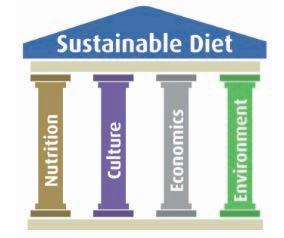
We are all doing our bit for the planet so good to know moderate amounts of dairy can play a role in a sustainable healthy diet. As well as being kinder to the environment, a sustainable diet also needs to provide adequate nutrition, be affordable , accessible and economically fair and based on foods that are part of the local culture (Figure 1)2. Ireland is one of the best places in the world for sustainable milk production. The grass based system is extremely efficient, resulting in one of the lowest carbon footprints internationally3
•Include an abundance and variety of fruit and vegetables
•Include wholegrains and high fibre carbohydrates
• Boost nutrient intakes with moderate amounts of dairy
•Include legumes and nuts; moderate amounts of eggs, poultry and fish; and small amounts of red meat
•Include safe tap-water as the fluid of choice
•Try not to consume more than you need
• Reduce food waste
Dairy is often associated with greenhouse gases, such as methane
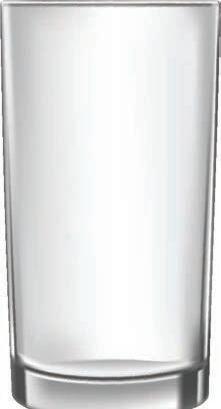
While 14.5% of global greenhouse gases arise from all livestock, less than 3% comes from milk production2. Therefore, while dairy certainly contributes to the issue of global warming, it is not a leading cause. When the environmental impacts are weighed against the unique nutritional value, dairy is well placed to play a role in meeting the global need for sustainable food production. As a result, moderate amounts continue to be included in dietary guidelines for sustainable diets across the globe.
2
The nutrients in milk contribute to the normal functioning of many processes in the body*
Cognitive function
Thyroid function
Normal skin
Bone development
Healthy teeth
Muscle function
Nervous system function
Muscle function
Blood pressure
Reduction of fatigue
Red blood cell formation
Immune system function
Iodine


Phosphorus

Vitamin Calcium
Vitamin Protein
Vitamin Potassium
Bone development
Healthy teeth
Energy metabolism
Muscle growth
Bone development
Muscle maintenance
Nervous system function
Normal skin
Normal vision
Energy metabolism
Reduction of fatigue
Source: EU Register of Nutrition and Health Claims made on foods
*not a complete list of functions.
Figure 5: Milk and dairy foods provide a rich matrix of nutrients which contribute to many normal functions in the body
Source: EU Register of Nutrition and Health

FAO. 2013. Tackling climate change through livestock – A global assessment of emissions and mitigation opportunities. Rome.

National Dairy Council
www.ndc.ie
Irish Nutrition &Dietetics Institute
www.indi.ie
Irish Heart Foundation
https://irishheart.ie/news/the-menopause-your-heart-and-your-diet/ Irish Osteoporosis Society
www.irishosteoporosis.ie
Health Service Executive
https://www2.hse.ie/conditions/menopause/ Safefood
https://www.safefood.net/healthy-weight-for-you/home
Department of Health Healthy Eating Guidelines and the Food Pyramid
https://www.gov.ie/en/publication/70a2e4-the-food-pyramid/